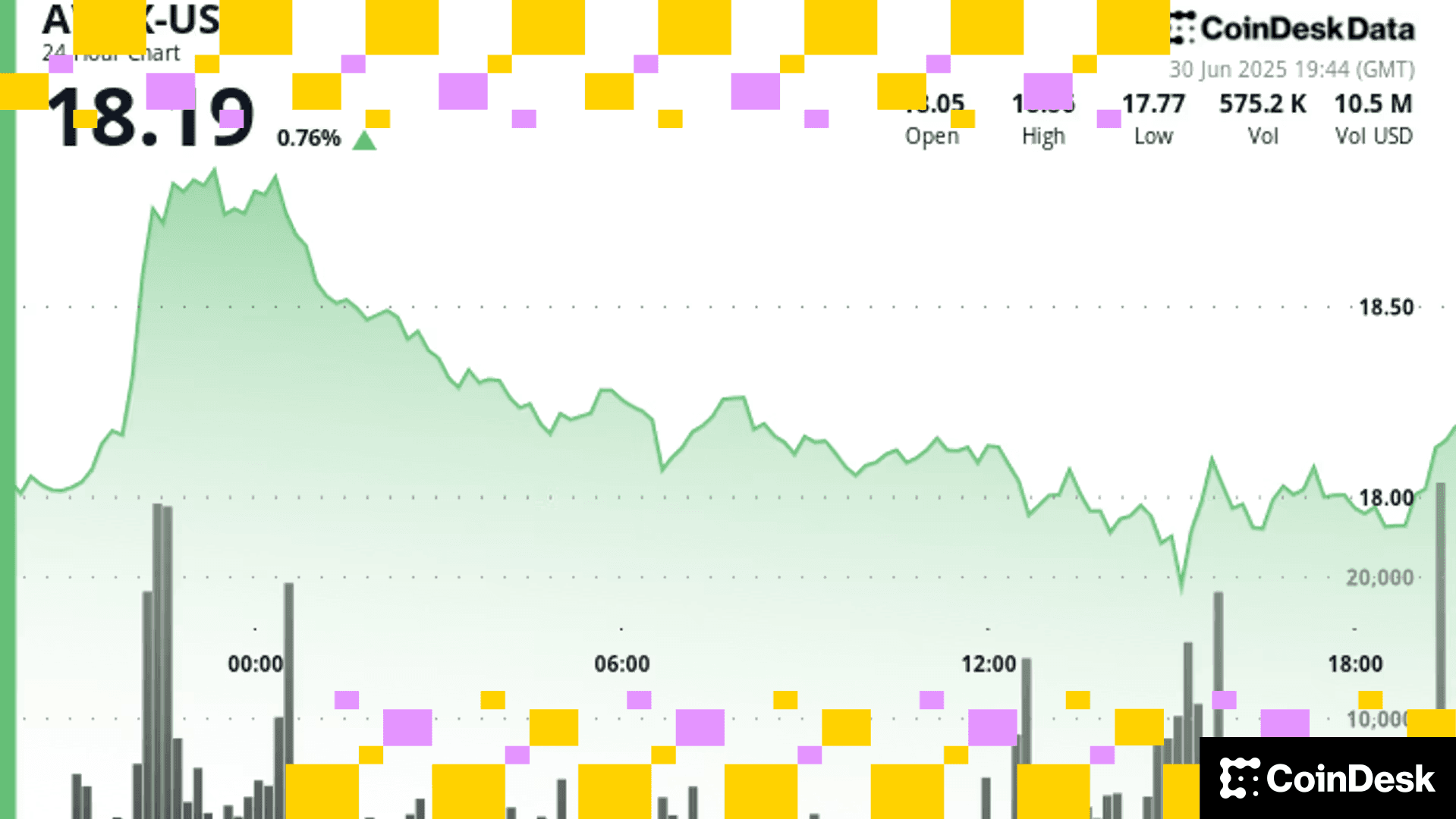Stablecoin Bill Unlikely to Get Pinned to FAA Reauthorization, Putting Effort On Hold Again
A flash of hope that an FAA bill could carry U.S. stablecoin rules across the finish line has been momentarily dashed as congressional leaders were said to ward off amendments.

- A Democratic aide familiar with the negotiation said House and Senate leaders are insisting on a clean FAA reauthorization that wouldn't allow the attachment of a stablecoin bill.
- The effort has drawn key support and may be tried again as the congressional session wanes.
Advocates for long-awaited U.S. stablecoin legislation tried to tie it onto an unrelated must-move reauthorization bill, but leaders in the Senate and House of Representatives are seeking to keep that effort clear of such attachments, according to a Democratic aide.
U.S. lawmakers had been engaged this week in serious conversations about whether to jam a stablecoin regulation amendment onto the Federal Aviation Administration reauthorization legislation, which is approaching a deadline. Such efforts to use that bill for other business were rebuffed by leaders favoring a so-called clean bill, so the leading stablecoin negotiation between House Financial Services Committee Chair Patrick McHenry (R-N.C.) and its top Democrat, Rep. Maxine Waters (D-Calif.), will return to talks on a final deal, said the aide, who requested anonymity because the negotiations aren't public.
Still, the serious maneuvering on behalf of stablecoin oversight reveals how much closer that vital corner of the industry is getting to daylight.
For the first time, the necessary senators engaged in the negotiations. Senate Banking Committee Chairman Sherrod Brown (D-Ohio) has said he's open to pairing stablecoin regulation with his push for a bill opening access to the financial system for cannabis businesses. And Senate Majority Leader Chuck Schumer (D-N.Y.) seemed to be on board for that, though Minority Leader Mitch McConnell (R-Ky. ) continues to signal he opposes marijuana banking.
The energy devoted this time could suggest that stablecoins may come up again when other must-pass bills move through Congress – and it may now be intertwined with the high-profile marijuana legislation.
"We believe this push will reveal how much support both have in Congress and who remains opposed," said Jaret Seiberg, an analyst with TD Cowen, in a research note. "It is why we see this effort offering insight into what could happen with these bills later this year when we expect the real push for enactment."
The vehicle that carries the stablecoin (and possibly marijuana) legislation doesn't have to make sense. As the industry learned previously, an infrastructure bill carried the most important move against crypto to date.
A final compromise version of the stablecoin bill that pleases both parties and both chambers hasn't yet emerged, so industry insiders are hesitant about cheering it on until they can get a good look.
"As with all legislation, the devil is in the details," said Kristin Smith, CEO of the Blockchain Association, in an interview with CoinDesk. "We look forward to seeing and providing feedback on any new drafts of compromises that emerge."
At this stage, multiple lawmakers could have major incentives to make a stablecoin bill happen.
"Brown has an incentive to get SAFER Banking [the marijuana banking bill] over the finish line this year, which would give him a win on a subject popular with voters, cannabis reform, months before a tough re-election fight," according to a Tuesday analysis from Beacon Policy Advisors, a firm that tracks financial policy in Washington. Beacon also noted that this is "a legacy-defining issue for McHenry, who is retiring from Congress at the end of his term."
Read More: U.S. Senators Lummis, Gillibrand Take on Stablecoin Legislation With New Bill
More For You
Exchange Review - March 2025

CoinDesk Data's monthly Exchange Review captures the key developments within the cryptocurrency exchange market. The report includes analyses that relate to exchange volumes, crypto derivatives trading, market segmentation by fees, fiat trading, and more.
What to know:
Trading activity softened in March as market uncertainty grew amid escalating tariff tensions between the U.S. and global trading partners. Centralized exchanges recorded their lowest combined trading volume since October, declining 6.24% to $6.79tn. This marked the third consecutive monthly decline across both market segments, with spot trading volume falling 14.1% to $1.98tn and derivatives trading slipping 2.56% to $4.81tn.
- Trading Volumes Decline for Third Consecutive Month: Combined spot and derivatives trading volume on centralized exchanges fell by 6.24% to $6.79tn in March 2025, reaching the lowest level since October. Both spot and derivatives markets recorded their third consecutive monthly decline, falling 14.1% and 2.56% to $1.98tn and $4.81tn respectively.
- Institutional Crypto Trading Volume on CME Falls 23.5%: In March, total derivatives trading volume on the CME exchange fell by 23.5% to $175bn, the lowest monthly volume since October 2024. CME's market share among derivatives exchanges dropped from 4.63% to 3.64%, suggesting declining institutional interest amid current macroeconomic conditions.
- Bybit Spot Market Share Slides in March: Spot trading volume on Bybit fell by 52.1% to $81.1bn in March, coinciding with decreased trading activity following the hack of the exchange's cold wallets in February. Bybit's spot market share dropped from 7.35% to 4.10%, its lowest since July 2023.
More For You












